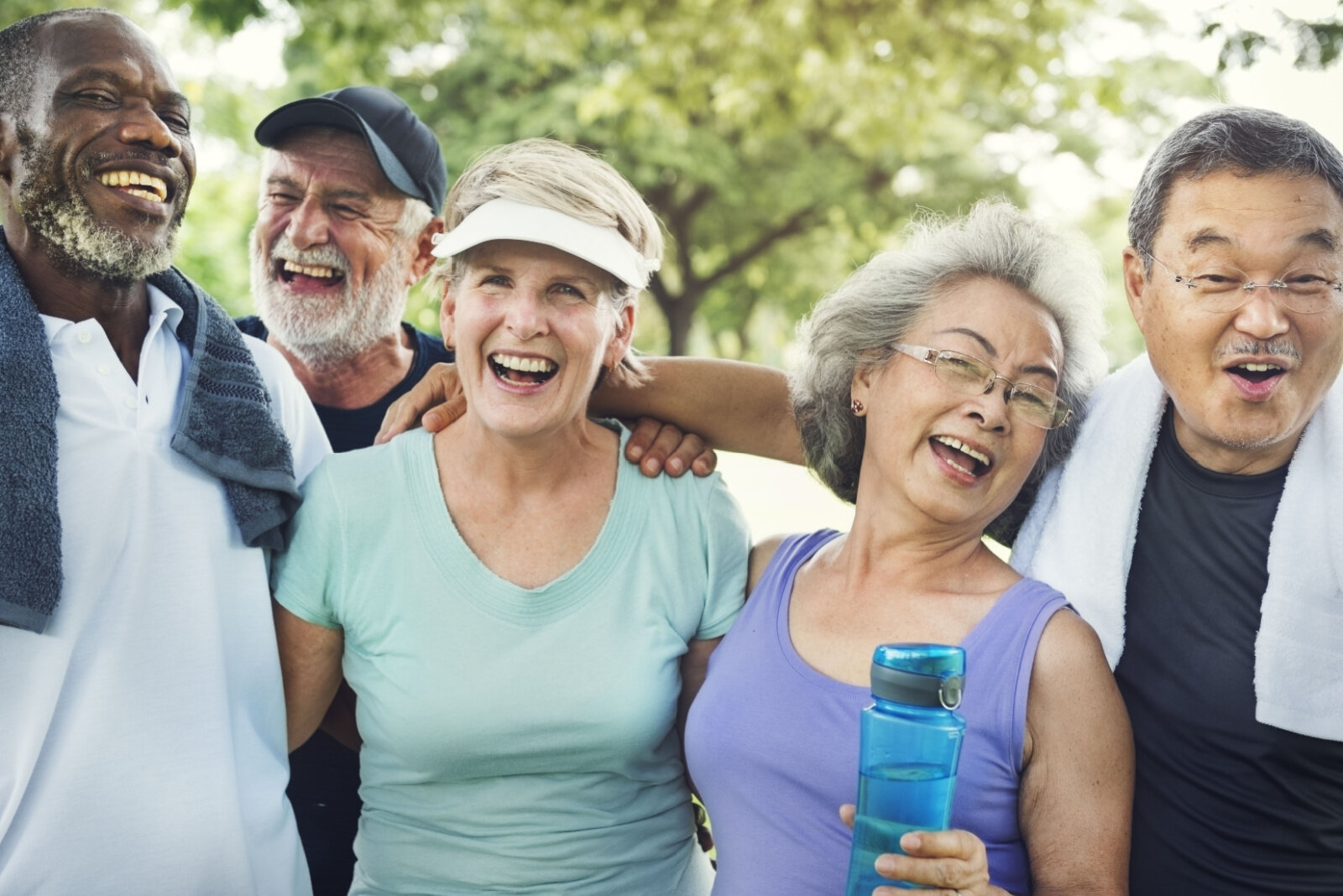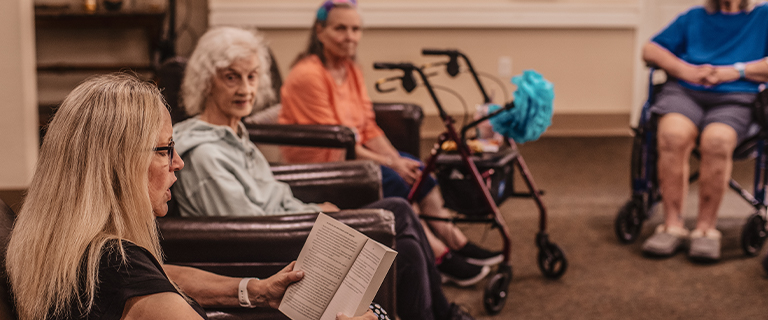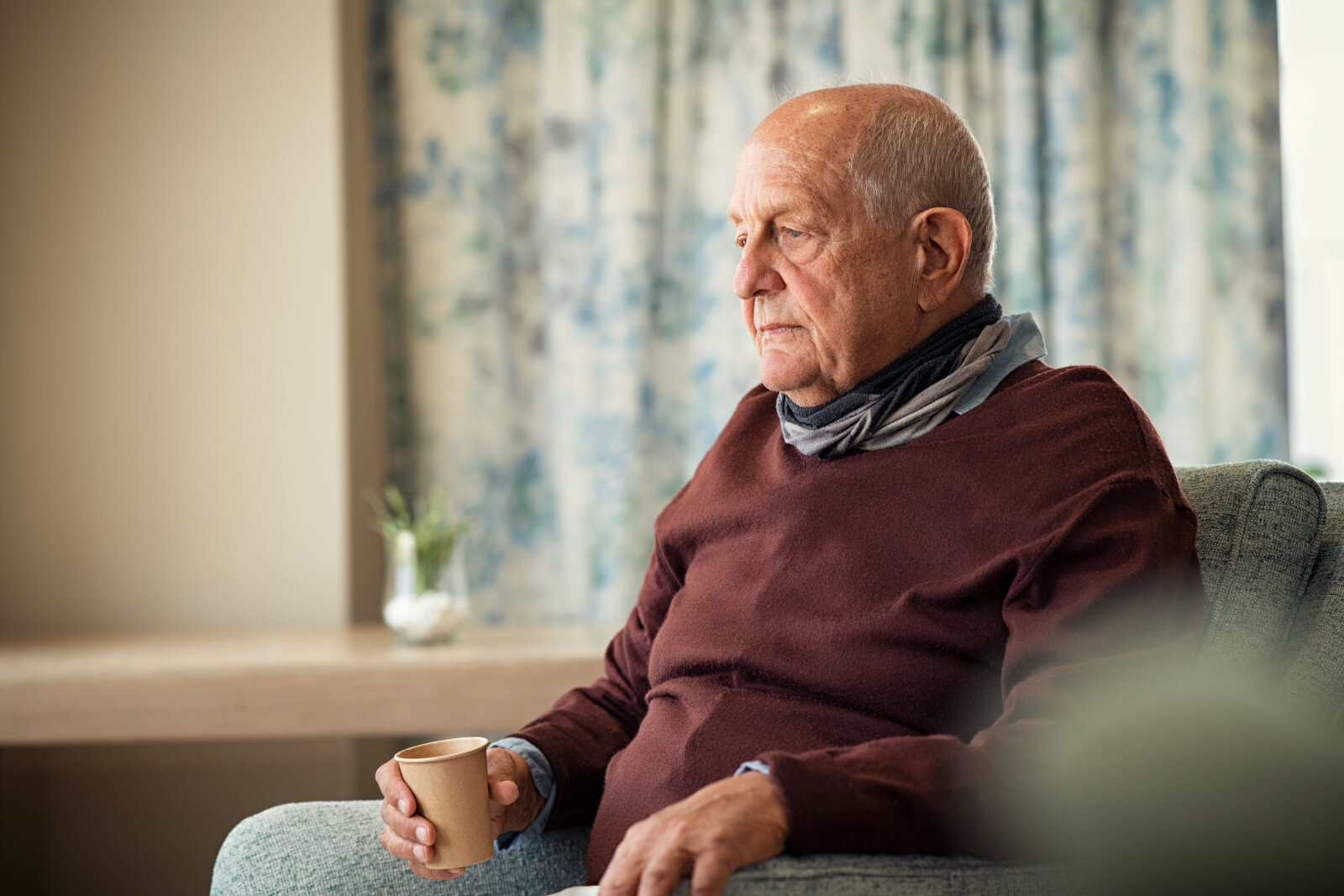The Importance of Social Health
Fostering relationships is essential for healthy living. Even people who feel comfortable living independently can suffer from loneliness.
Older adults have a greater risk of social isolation. Almost ⅓ of adults 45 and older feel lonely, and nearly ¼ of adults 65 and older are considered isolated. Sadly, the health risks of social isolation are comparable to smoking, obesity, and physical inactivity.
But there are many ways seniors can improve their social capital. Read on to learn how social health can support senior lifestyles.
The Risks of Social Isolation
Many older adults are vulnerable to isolation as obstacles limit their social connections. For example, seniors may have mobility problems, limited transportation, or live far from family and friends. The area where they live may have fewer social opportunities, such as community activities or clubs.
Seniors need the opportunities and resources to build social capital. When seniors are encouraged to foster connections, whether it’s family, friends, or neighbors, they can improve the quantity and quality of their social network. With more connections, seniors can feel supported and valued.
Loneliness and social isolation can severely impact health and quality of life. When seniors are isolated, there’s an increased risk that seniors will develop:
- Alzheimer’s disease
- Anxiety
- Cognitive decline
- Depression
- Heart disease
- High blood pressure
- Immune system disorders
- Obesity
Research into prolonged loneliness and social isolation in older adults has discovered an increased risk of premature death and higher rates of suicide. Recent studies have noted that isolated seniors can experience the following:
- 68% increased risk of hospitalization
- 57% increased risk of emergency department visits
- 50% increased risk of developing dementia

The Benefits of Social Connections
In addition to lowering health risks, social connections can have many positive benefits for health.
Emotional Health
Having a friend, neighbor, or someone to rely on can help seniors feel safe and supported. It can be challenging for older adults living far from family or alone. Fortunately, living within a close-knit community, reliable transportation, and access to social activities can help seniors develop a support system.
Modern communication has made long-distance relationships easier, but face-to-face social interactions offer the most significant health benefits. Spending time together in person can decrease depression risks. According to the Centers for Disease Control and Prevention (CDC), depression affects 1–5% of seniors living in communities and 11.5–13.5% of seniors who require home healthcare or hospitalization.
Fortunately, it’s not how many friends you have or meet with regularly but how connected you feel that matters.
Seniors may feel supported and connected with only a handful of friends or prefer a larger social system. Whichever social style they like, it’s crucial seniors are given the choices and the opportunities to participate socially.
Motivation & Participation
While some people can easily join in no matter the situation, others find courage by pairing with a companion. By bolstering courage side-by-side, social connections inspire positive health-seeking behavior in seniors.
The most well-known example of this positive effect is the exercise buddy. Participating in physical exercise, social groups, or everyday tasks is easier when there’s someone you look forward to seeing. An activity or workout buddy can motivate seniors to:
- Stay active: When your workout buddy or partner expects you to show up, you don’t want to let them down. Seniors may exercise more consistently or participate in social groups more often when they have someone by their side.
- Try new things: Maybe there’s an activity you’ve always wanted to try or a skill you’re curious about learning. Or maybe your friend heard about a unique activity or place to visit. Going together can inspire seniors to try new things and enjoy more opportunities.
- Enjoy challenges: Older adults may play it safe for fear of falls, injuries, fatigue, or other worries. With an activity buddy, seniors can feel safer knowing they’re not alone and enjoying challenging themselves. They can feel more comfortable giving their all during a fitness class or trying something new.
Physical Health Benefits
When seniors are motivated by social connections to stay active, it can benefit their physical health. Notably, staying active is essential for managing health, reducing the risk of chronic illnesses, supporting brain health, and improving mood.
Social connections can inspire seniors to keep moving, whether they sign up for a fitness class, join a bowling team, or enjoy daily walks with friends. Engaging in meaningful activities gives seniors a sense of purpose, whether completing a family project, volunteering to serve others, or challenging a friend to a game.
Social connection is also linked to a decreased risk of neurodegenerative disease. Participating in conversations and social relationships is like exercise for the brain. We’re motivated to learn about the people we interact with, which protects the brain and improves memory formation. With greater social capital and opportunities, seniors can keep their minds active.
Connect with Our Community
At Parsons House Preston Hollow, we celebrate our residents’ lives and daily successes. Our exceptional community is designed for your lifestyle and pace, whether you thrive with a full social calendar or enjoy quiet relaxation.We encourage seniors and their families to book a tour to connect with our community. Contact us today to discover all Parsons House Preston Hollow has to offer.



